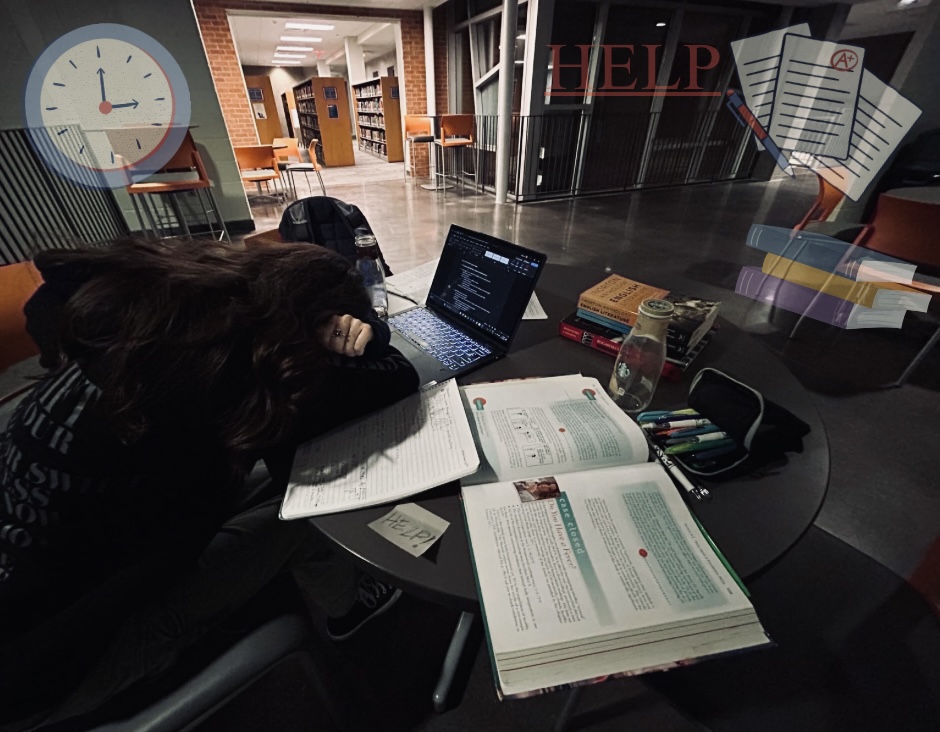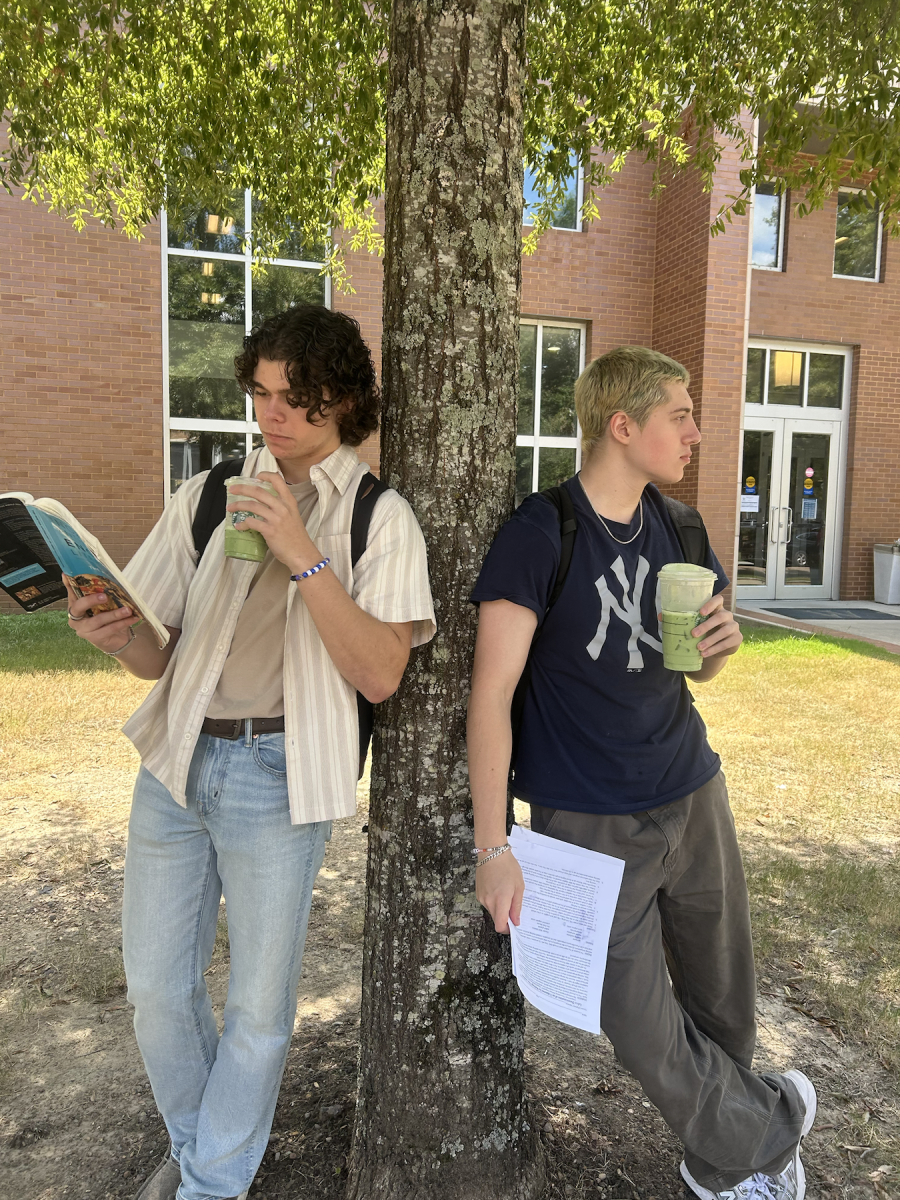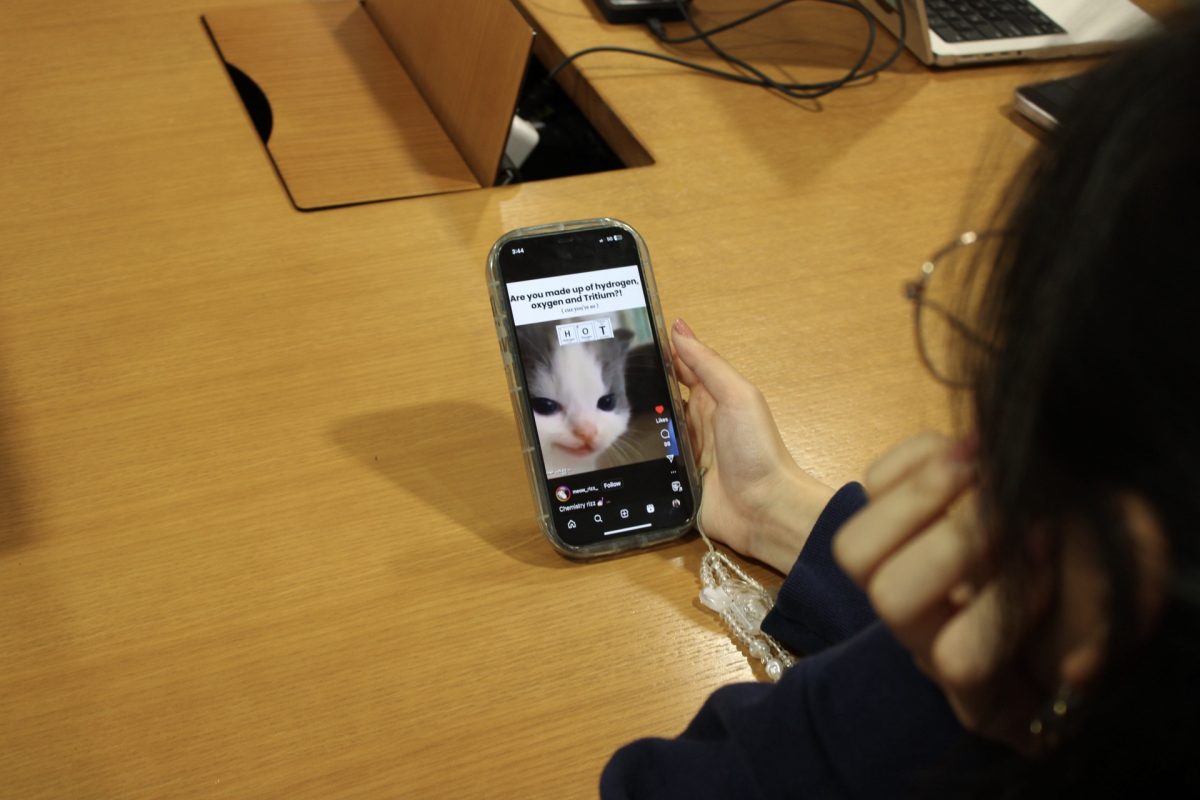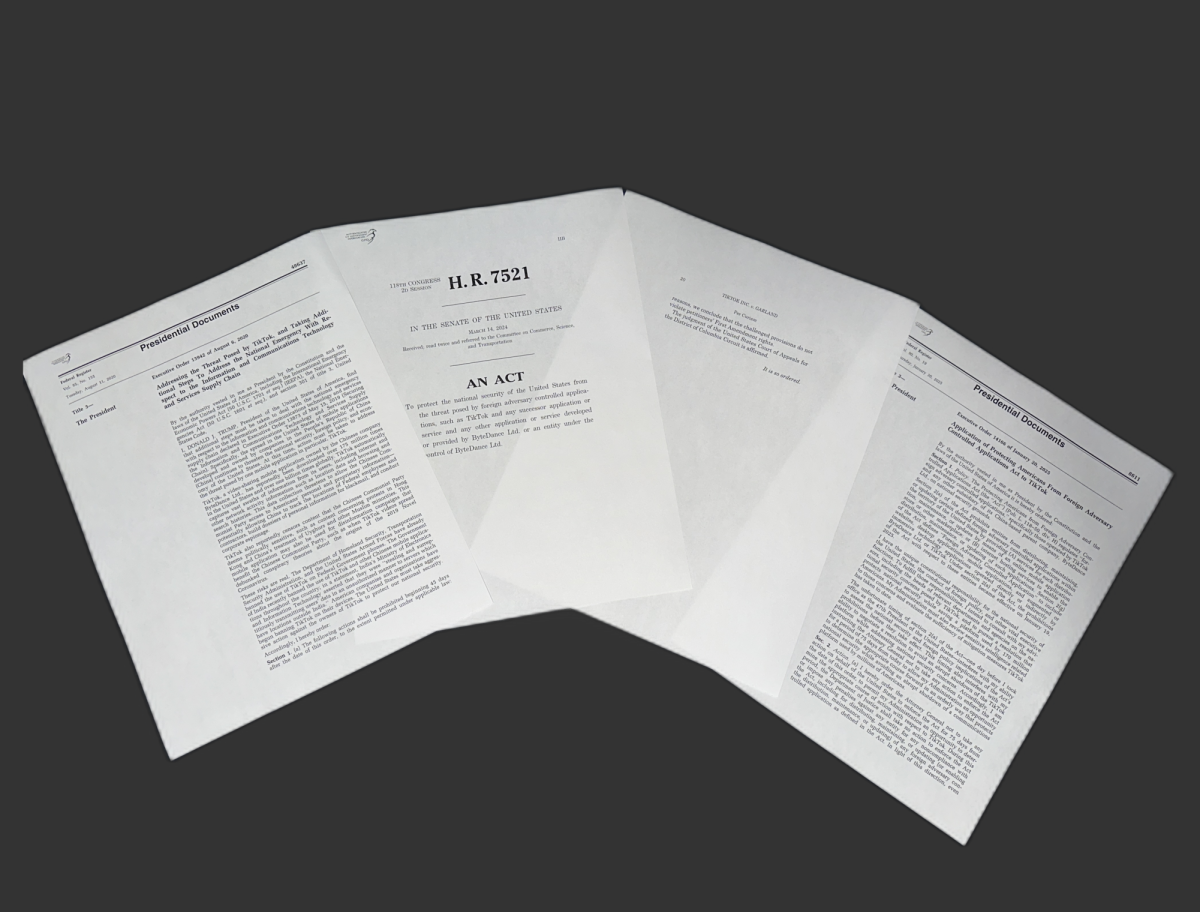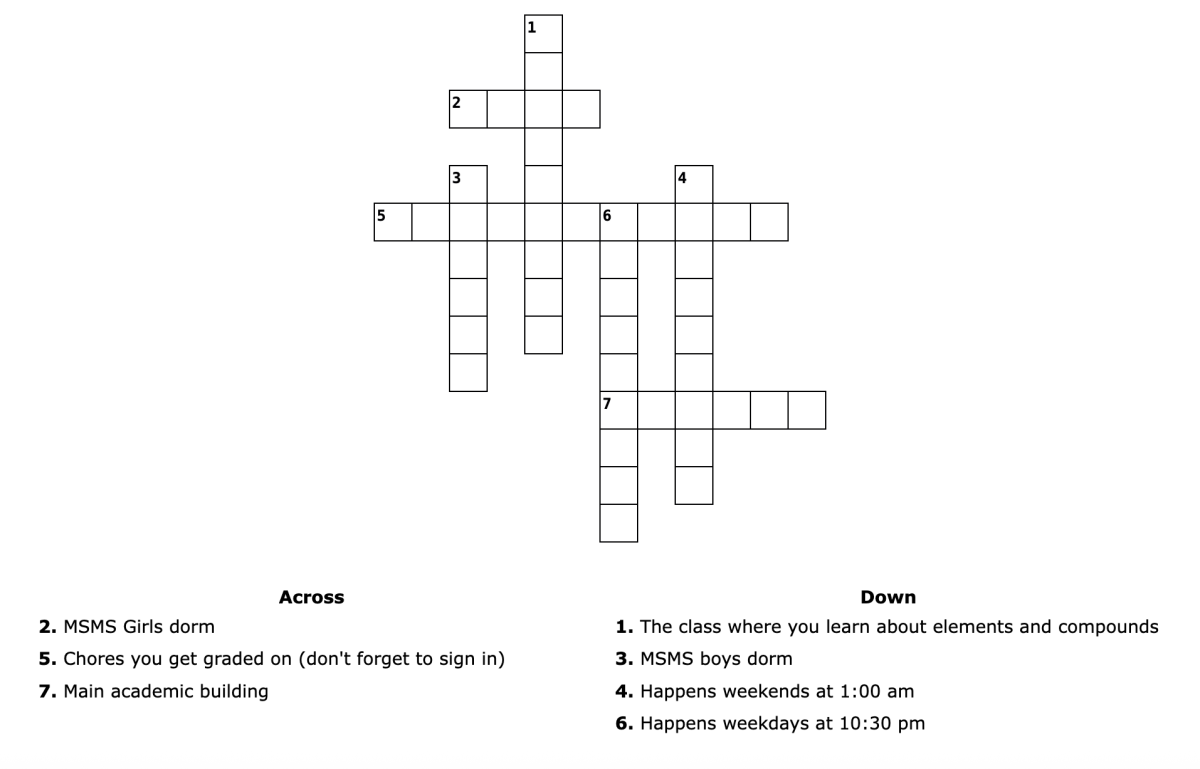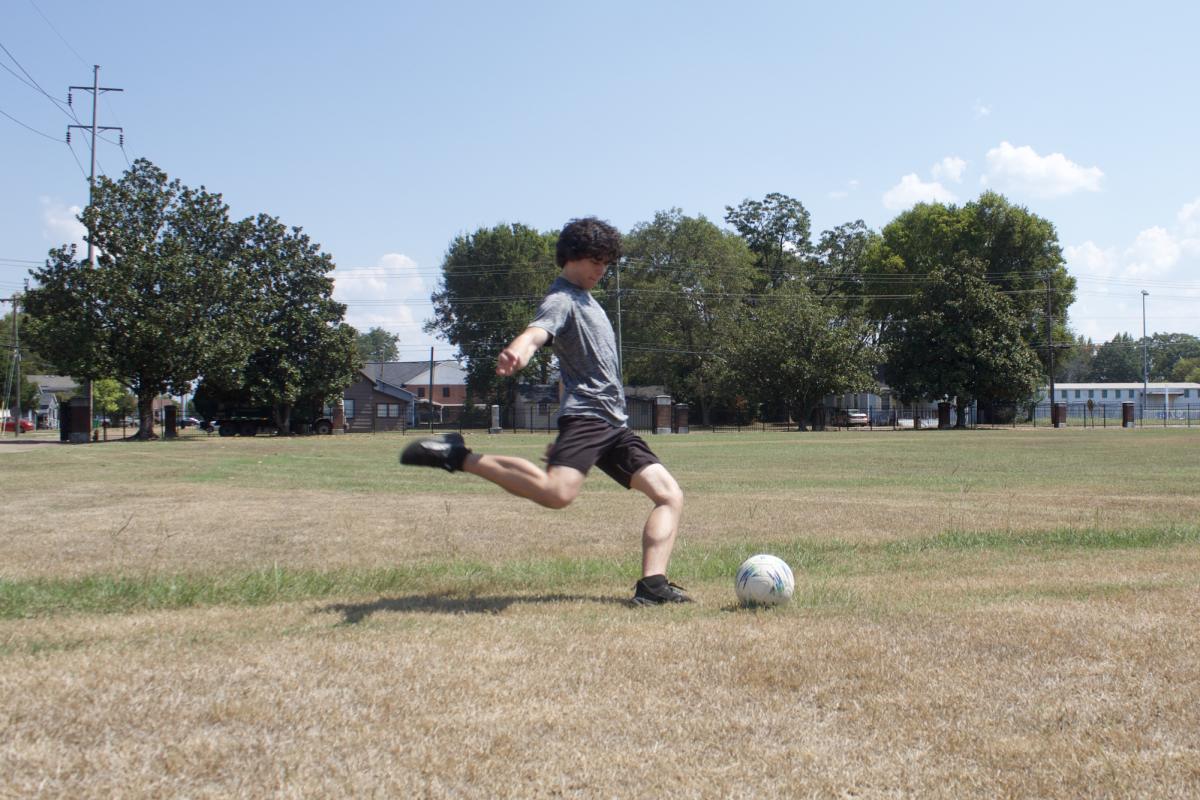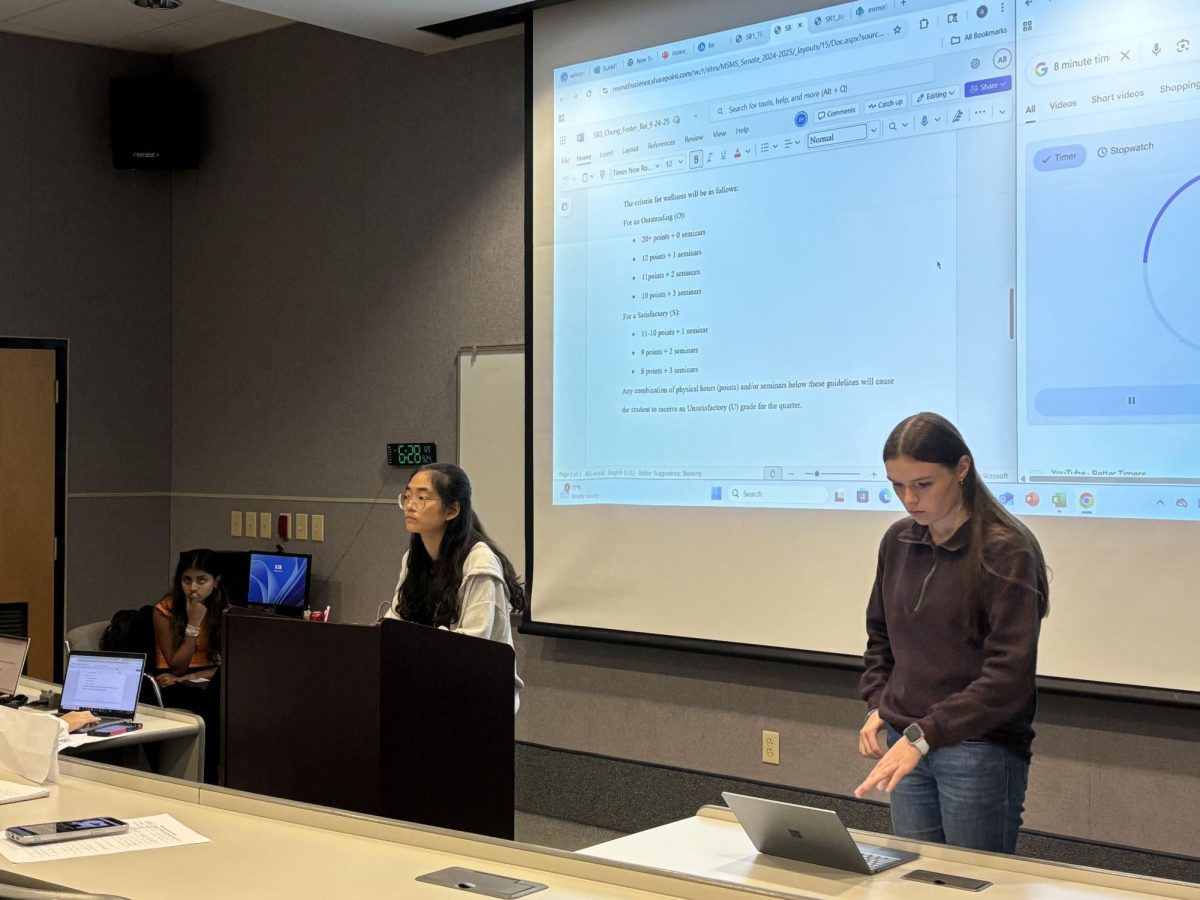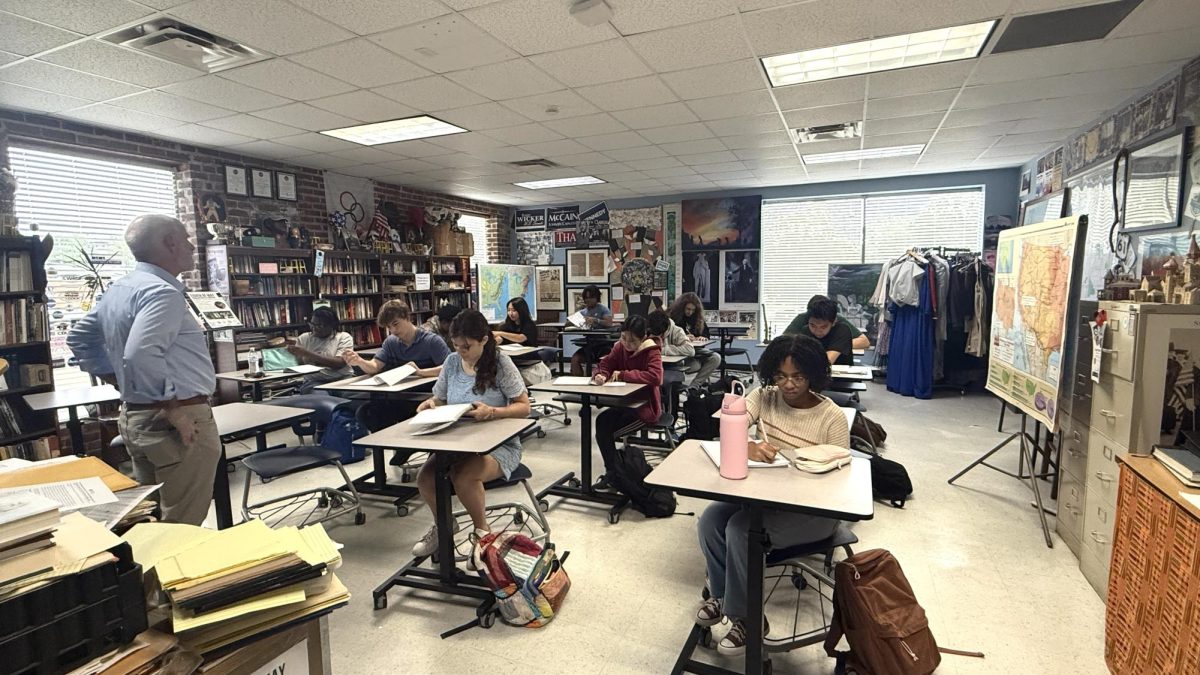MSMS juniors and seniors may have their differences, but there is one thing neither class can escape: exam season. Though often underestimated from an outside perspective, exams can be extremely harmful to students.
Entering MSMS as a junior, the first year is filled with ups and downs. There’s the thrill of meeting and living with new people, and the adjustment period while navigating the newfound independence and freedom. While these — along with group study sessions or spontaneous dance parties — may be some of the highlights, come December, juniors are thrown into the deep end when finals week comes.
Prior to MSMS, many students weren’t required to take exams at their previous school if they were exempt based on grades and behavior. This new aspect alone is challenging for many students, but coupled with the rigor and extremity of the courses and tests at MSMS, exam week can be detrimental to the student population’s health and habits.
Seniors have learned from their junior experience, and most have developed a better preparation plan, or at least know what to expect when exams come. However, a better study plan can only make the exam stress a little easier to manage as many prioritize college applications and processes. Though they can’t go back to junior year, seniors can offer advice to current juniors based on their own experiences. This advice, however, isn’t enough to prepare juniors for what is to come.
As a junior, it is common knowledge exams are going to be challenging, but it is impossible to know what really means until it is personally experienced. The stress of exam week can lead to irregular habits along with an unhealthy prioritization of school over personal physical, mental and emotional health. Some students may skip meals and sleep to study longer. Not only do these habits typically have the opposite effect and cause students to perform worse on their tests, but they can lead to sickness and physical ailments.
Looking back on junior-year exams as a senior, I’m honestly not sure how I made it through the week, and I definitely don’t know how I was as enthusiastic about coming back for senior year as I was. There were multiple nights I got only a few hours of sleep or none because I studied nonstop. Instead of wasting valuable time to go to the cafeteria for a balanced and energizing meal, I would skip the walk and settle for a pack of ramen or chips I had in the dorm. I never had worse habits than those, and I wasn’t the only one. Almost everyone around me was doing similar things to prepare for their exams. Students looked completely drained every day, and socialization was at an all-time low. There were students crying their eyes out due to stress and others who didn’t even return after winter break because of it.
As exam season approaches this year, I can’t help but think of the horrors from last year and feel a mixture of fear and empathy for juniors this year. In an ideal world, we would have no exams. In this one, there is an imperative need for more awareness of the harm exams can cause and the importance of encouraging students to practice healthier habits.
While I can’t cancel exams or speak enough words to prepare juniors, here are some habits to practice and keep in mind in the upcoming weeks.
Eat nutritious foods instead of skipping meals
It may seem like a good idea to skip the trip to the cafeteria so you can cram in some more studying, but this does more harm than good. Skipping meals can disrupt your thinking process, cause increased irritation, confusion, and fatigue. Though it can be tempting, try to go to the cafeteria for at least lunch and dinner. Include breakfast if you prefer; maybe consider going with friends to keep each other accountable, and if you have to skip, try to have food handy in the dorm so you have something just in case.
Prioritize sleep
Sleep is just as important as eating or breathing. Your brain needs it to help it run properly and process everything you’re learning. It can be tempting to stay up late to study, but if you’re not getting enough sleep, you’re likely to not do any better on your exams. It not only affects your energy levels, but it also impacts your emotions and behavior. Try to manage your time during the day and begin studying early so you’re not cramming at the last second. Try to prioritize your sleep schedule and aim to get as much sleep as possible.
Find ways to manage stress and do things that make you happy
Increased stress during finals week affects learning and retention of exam material and has negative effects on mental and emotional health. There are many ways to manage stress during exams, and you should find what works best for you. Some common things that might help are exercising, spending time outside or spending time with friends. Ultimately, you should make time for yourself and the things you love and that make you happy. Lowering your stress levels can help you sleep better, be in a better mood and perform better on your exams.
Take breaks and be kind to yourself and others
Overall, remember to take care of yourself during exam week. It’s amazing what you have already accomplished, and you’re going to do amazing if you’re aware of your habits during finals. Remember, everyone will be a little stressed — or a lot — so be patient and empathic with others and aware of the way you act toward them. We’re all in the same boat, so it’s okay to lean on each other.

